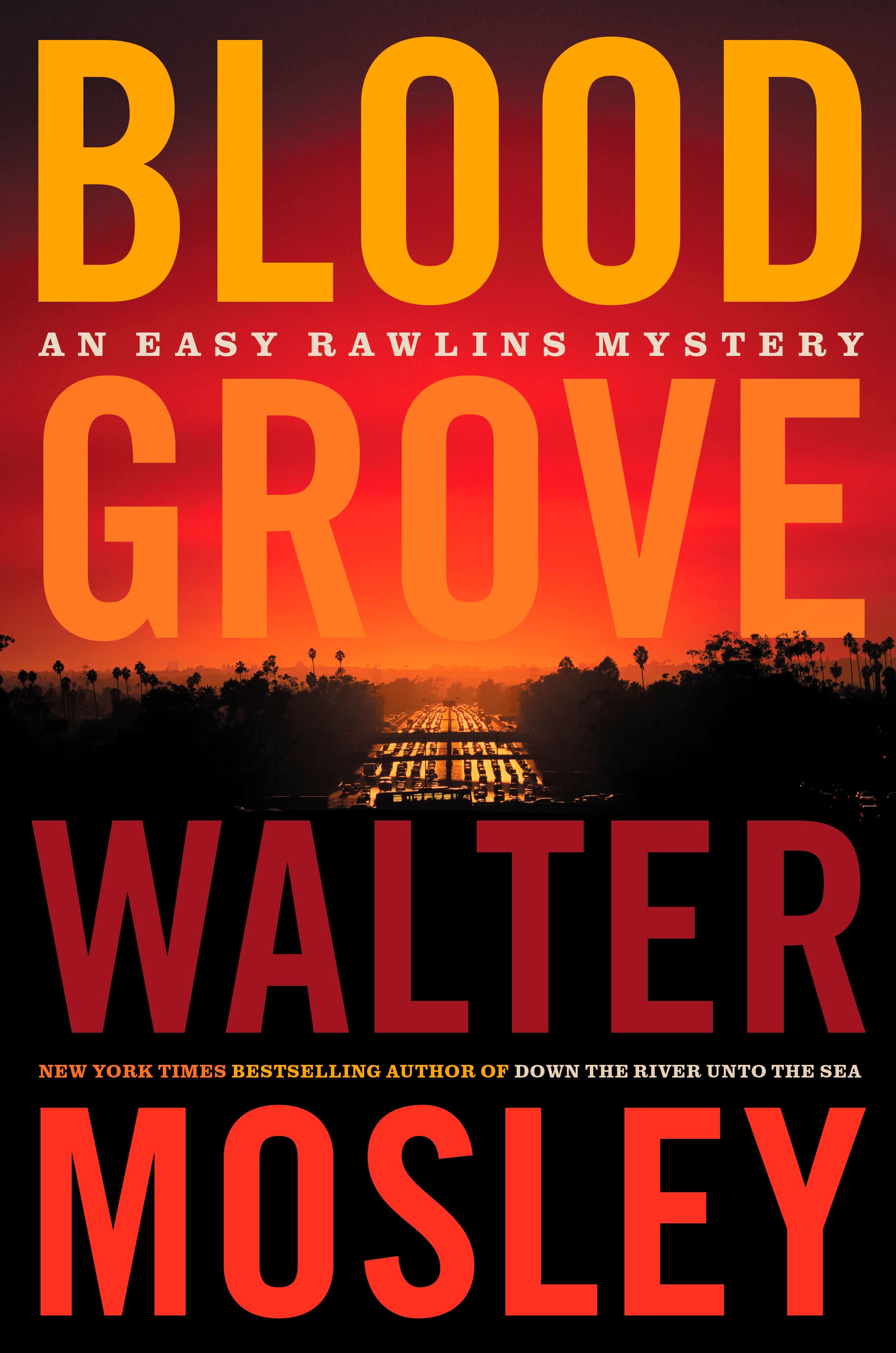Review: 'Blood Grove' a bewildering maze of double-crosses
“Blood Grove,” the 15th crime novel in Walter Mosley’s series featuring Los Angeles private detective Easy Rawlins, opens in 1969 when a Vietnam vet comes to Easy with a wild story

“Blood Grove,” by Walter Mosley (Mulholland Books)
Walter Mosley’s Los Angeles detective, Easy Rawlins, has always invited comparisons to the original hard-boiled Southern California gumshoe, Raymond Chandler’s Philip Marlowe— but never more so than in “Blood Grove,” Mosley’s 15th and latest installment in his series.
The surface similarities are obvious. Both detectives work what Chandler called L.A. County’s “mean streets.” Both are seldom in the good graces of the authorities. And both sometimes meander through rambling plots that are difficult to follow.
In “Blood Grove,” as with Chandler’s “The Long Goodbye,” the plot is so byzantine that it borders on incoherent. And that’s OK.
Both Chandler and Mosley amply reward readers with the beauty of their prose and with the world views of their iconic heroes, men of honor struggling to do right in an unjust world. For Marlowe, that meant trying to earn an honest living and stay alive in the corrupt, cultural wasteland of late 1930s to 1950s Los Angeles. For Easy Rawlins, it has meant trying to do the same with the added complication of being a Back man in race-torn, post-World War II Los Angeles.
“Blood Grove” opens in 1969 when Easy, an aging World War II veteran is approached by a Vietnam vet with a wild story. The young vet thinks he may have killed a Black man in a fight over a white woman, but he’s not sure because he got knocked out and was alone when he came to. Could Easy track down the missing man and woman and find out what happened?
Easy figures the story is hooey but takes the case out of solidarity with a fellow vet. Soon, he finds himself trapped in a bewildering maze of double-crosses, multiple murders, sex clubs and armed robberies.
As always, Easy carefully calibrates his every move in a city where a Black man is perceived as a threat whenever he steps into a nice hotel or drives a good looking car down the street.
“The Civil War had ended more than a century before,” Easy thinks as a cop holds a gun to his head, “but the remnants could still be felt, still killed over on any street corner in the country.”
___
Bruce DeSilva, winner of the Mystery Writers of America’s Edgar Award, is the author of the Mulligan crime novels including “The Dread Line.”